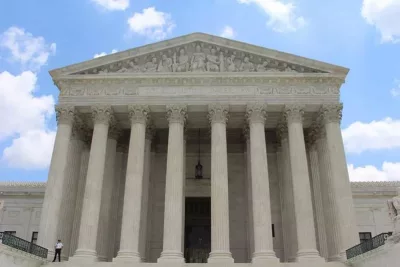
What is Defamation Insurance and Do I Need It?
This page has been peer-reviewed, fact-checked, and edited by qualified attorneys to ensure substantive accuracy and coverage.
Defamation, and the Reach of the Internet
Not only do we use the Internet to research small things, such as how to tie a tie, or how to replicate your grandmother’s famous Italian lasagna, but, we use it to stay informed about products and services. The Internet offers increased protection for consumers, by providing extensive educational tools and resources for them. Maybe a simple Google search led you to a stellar review of a lawn mower, prompting you to buy it, or gave you a side by side comparison of two products.
There are countless positives and benefits to having such information at your fingertips, but unfortunately, there’s also downside; having negative reviews or content posted about you or your company, directly affecting your reputation, brand, and bottom line. Oftentimes, information published online about products and services can be unlawful, falling under the category of “libel,” a subsection of defamation.
Consequently, individuals or businesses may decide to file suit against the publisher or speaker of that information. What most parties accused of defamation don’t know is that there’s actually a protective measure they can take to preserve their financial status quo and livelihood; defamation insurance.
The below post is meant to provide a basic overview of defamation insurance, what it covers, and when you need it.
Let us help. Contact us for a free consultation with an intake specialist to help you explore your removal options and craft an effective strategy.Are you the target of defamation?
The Basics: What is Defamation and Defamation Insurance

First, before we discuss what defamation insurance is, it’s important to understand exactly what defamation is.
‘Defamation’ is an all-encompassing term for the written or spoken communication of a false statement negatively impacting the reputation of an individual, business, organization, product, government, religion, or nation. Generally, defamation is classified into two different categories; libel and slander.
- Libel: a printed or written false statement published to a third party that is harmful to a person’s reputation,
- Slander: a spoken false statement published to a third party that is harmful to a person’s reputation.
When discussing defamation, it’s common for individuals to confuse the two, often believing slander to cover false written statements, when in fact, libel applies. When bringing a defamation claim, an injured party is required to prove the following four things:
- The statement published was actually false,
- It was negligently communicated and published to a third party,
- The statement wasn’t privileged or protected under an exception,
- It injured the plaintiff and caused damages,
Simply put, a statement is considered defamatory if it adversely affects a person’s reputation, lowers their standing in the eyes of the community, or deters third parties from associating or dealing with them. When determining the substance of a statement, Courts seek to analyze the statement in its entirety, not just the alleged defamatory portion. What was the ultimate affect the statement had on a third party? Is it reasonable an average person would believe the statement to be true? Are there any defenses to the statement?
Defamation Law Fact: Prior to the decision in New York Times Co. v. Sullivan, there was an estimated $300 million spent on libel suits by Southern states against various news and media outlets in a concentrated effort to suppress coverage and information about the African-American civil rights movement.
Now that we’ve established what defamation is, it’s important to understand how defamation insurance can provide protection and coverage for parties accused of defamation.
What Type of Insurance Policy Cover Defamation Claims?
Generally, most people carry some form of an insurance policy, for example: auto insurance or homeowner’s coverage. Unfortunately, most insurance policies don’t typically include defamation claims, unless specifically purchased.
Homeowner’s insurance policies typically allow someone to include “excess liability” coverage, a policy issued to provide additional limits above and beyond primary liability policies. Think of excess liability coverage as an insurance on your insurance, or an umbrella policy where you’re extended further coverage if your primary policy fails to cover something. For example, if you have “excess liability” insurance and are facing a claim of defamation, you may have your expenses of defending the claim covered, or even a portion of a settlement amount.
Defamation insurance only extends to parties who acted in good faith or unknowingly, not parties who published material they knew to be false, or who acted recklessly publishing such information. The “knowledge of falsity” exclusion affirms this, precluding parties from relying on coverage where they acted maliciously or recklessly. Additionally, if you own a business, and make defamatory statements about a competing business or contractor, you would be precluded from defamation coverage under a “business activities” exclusion, due to the statements being made for economic gain.
Defamation Law Fact: When executing an insurance policy, talk to your insurance agent about adding “excess liability” to a new or existing insurance policy.
“Excess liability” coverage can protect against some of the following defamation and legal claims:
- Slander
- Libel
- False arrest, detention, or imprisonment
- Malicious prosecution
- Shock and mental anguish
- Other personal liability situations
Keep in mind that each insurance policy is different and there is no guarantee your respective insurance company or policy offers such coverage. For Ohio residents searching for a policy that covers defamation and other torts, the Ohio Department of Insurance is a comprehensive resource for locating agents, policies, and companies.
Defamation Law Fact: When evaluating whether to opt for defamation insurance, take a step back and assess whether you, your profession, or business frequently engages in publication, advertising, or promotional activities. Parties who engage in the such activities are more likely to avail themselves to situations that could lead to a defamation claim.
I’m a Journalist, Do I Need to Purchase Defamation Insurance?
In August, 2017, Ali Yashar, a New York magazine and HuffPost contributor and journalist, was sued by Fox News host Eric Bolling for over $50 million in damages. The suit centered around a HuffPost article by Yashar accusing Bolling of texting sexually explicit photos to three coworkers. Yashar’s attorney called the lawsuit, “a calculated effort to harass and intimidate Mr. Ali personally,” and HuffPo Editor in Chief, Lydia Polgreen, vowed to cover all legal expenses.
Not all journalists and freelancers are lucky enough to have the backing support of the organization they regularly contribute to, as some contracts indemnify such news organizations against legal action, leaving contributors and journalists high and dry, and liable. With lawsuits, and the constant threat of having one brought against them, a harsh reality for freelancers and journalists, this begs the question; Should independent contractors, journalists, and freelancers purchase defamation insurance?
Yes. Purchasing specialized insurance covering libel, slander, and other defamation charges is extremely important for journalists, independent contractors, and freelancers. Such professions allow for an uneven power dynamic, where publishers and other organizations tailor contract warranties, representations, and indemnity clauses to their benefit, opening journalists up to a higher degree of liability. Therefore, journalists and other freelancers need some form of protection.
Defamation Law Fact: If you are a freelance journalist, independent contractor, or freelancer, steer clear from purchasing basic general liability policies, as they often fail to cover certain nuances and intricacies of media law.
On top of such contracts manifesting themselves in such a one-sided way, journalists often fail to realize that general liability policies are not the answer for best protecting themselves. General liability policies typically fail to cover defamation charges in an all encompassing context, opening up journalists and freelancers to liability for content published and disseminated by media organizations and outlets.
When purchasing specialized defamation insurance, journalists and freelancers should seek to include media liability policies that cover the following:
- Defense costs: Defending defamation suits can cost a pretty penny. Frivolous defamation suits are ripe in today’s litigation arena, and don’t even make it to trial, so it’s best to make sure you aren’t paying out of pocket to defend such claims.
- Media-related charges: Journalists and freelancers should make sure their insurance covers claims related to content publishing and newsgathering. Not only should such policies include libel and defamation, they should also include invasion of privacy, errors and omissions, and intellectual property infringement claims.
- Global coverage: “Libel tourism” is an unfortunate and growing reality in the world of defamation, where plaintiffs “forum shop,” or choose the legal jurisdiction most likely to issue a favorable decision. Purchasing a policy that covers charges filed outside of the United States will help protect journalists’ and freelancers’ rights on a greater and global scale.
- Occurrence policies: Occurrence policies protect journalists and freelancers from any incident or event that occurred during the policy period. Including such a policy is important for parties who write or publish material, because there’s a chance a lawsuit may not be filed until years later.
- No “Hammer Clause,” aka “The Consent to Settle” clause: Similar to how a hammer leverages its power against a nail, a hammer clauses allow insurers to force insured parties to settle their claim. Settling a claim too early in order to save on defense costs could lead to not having one’s name fully exonerated for libel and defamation claims. It’s important your insurer understands defamation and media law, as the First Amendment should be upheld, not suppressed due to a desire to save on litigation costs. The most comprehensive defamation insurance policies should require consent of the policyholder before settling.
Defamation Law Fact: Think of defamation and media liability insurance as an essential and the cost of doing business, similar to hiring an accountant or other operations costs.
Defenses to Defamation
The internet is plagued with defamatory posts and content. However, just because a post or piece of content displeases you, and leaves you with a bitter taste in your mouth, doesn’t mean it’s actually defamatory. Acquainting yourself with potential defenses to defamation claims is important when deciding whether your claim has any merit.
Defamation law strives to find a balance between protecting persons from false, harmful, and malicious statements, and protecting free speech and the First Amendment. Parties sued for defamation may escape liability if able to prove one of the below privileges or defenses:
- Truth: If a statement is accurate and true, an absolute defense to defamation exists. Courts have held that statements need not be literally true in order to give rise to an effective defense, as long as the statement and “gist” of the statement is substantially true.
- Consent: If a plaintiff has consented to the publication of a defamatory or false statement, defendants will then enjoy a complete defense to any defamation suit.
- Privilege: Privilege protects certain parties from defamation claims due to the nature of their status or position. In order to further public and legal policy, privilege exists in order to protect certain persons, officials, classes, and groups from liability. For example, privilege applies to statements made in legislative and judicial proceedings, and when dealing with publications between spouses, and executives.
- Opinion and fair comment: Both opinion and fair comment are protected under the First Amendment of the U.S. Constitution. Opinions are statements that can’t be conclusively proven to be true or false. Just because a person refers to you as a “jerk, failure, or inept,” it does not affirmatively assert a statement of fact and cannot form the crux of a defamation suit. However, if a statement does imply false facts, it’s likely actionable. Additionally, fair comment exempts publishers of statements that are concerning matters of public interest, as long as their are not made out of spite, ill will, or with the intent to harm.
If you’re wondering where your money goes to when buying defamation insurance, it’s towards your lawyer’s preparation and gathering of information to help further such defenses. If you’re unclear about whether a statement or post is actually defamatory, cross-reference it with the above defenses, and you’ll likely have your answer.
Defamation Law Fact: All states, except Missouri, Arizona, and Tennessee acknowledge there are certain statements that are so innately harmful and damaging that they have a category of their own defamation per se. Defamation per se includes false statements: (1) injurious to a person’s profession, business, or trade, (2) alleging someone has a loathsome disease, such as leprosy or a sexually transmitted disease, (3) alleging a person is sexually promiscuous or “unchaste,” and (4) alleging someone has committed a crime or act of moral turpitude.
The Internet Defamation Lawyers of Minc, LLC Will Fight to Remove Offending Content
With the global reach of the Internet, the reality of ending up on one side of a defamation lawsuit is a lot more likely than most people or businesses appreciate. Familiarizing yourself with certain protective tools and measures if subject to a defamation claim will put you ahead of the curve, better protecting your financial livelihood and reputation.
Although the Northeast Ohio-based law firm of Minc, LLC does not typically defend against cases of defamation, we do help individuals and businesses who are targets of defamatory reviews and online posts. Before deciding to commence a claim against a party who has posted defamatory information, it’s now more relevant than ever to consider if they may have defamation insurance. Failing to do so, could result in you wasting time, or running up financial costs, while they remain protected and unaffected by such litigation.
If you’re reputation and character is facing a malicious online attack or post, you may simply want the content removed and for the attacks to stop. In some circumstances, you may want to hold the individual poster accountable for his or her damaging statements and conduct.
The defamation lawsuit attorneys at Minc, LLC, based out of Cleveland, Ohio, will fight for you or your business’s reputation against online libel and other defamation. To schedule a free, no-obligation initial consultation with an intake specialist, call (216) 373-7706, or schedule a meeting online by filling out our online contact form.
★★★★★
“The Minc firm handled my case very quickly, efficiently and thoroughly. I am very pleased with the level of professionalism and quality of work that they provided.”
Anonymous, October 7, 2019


